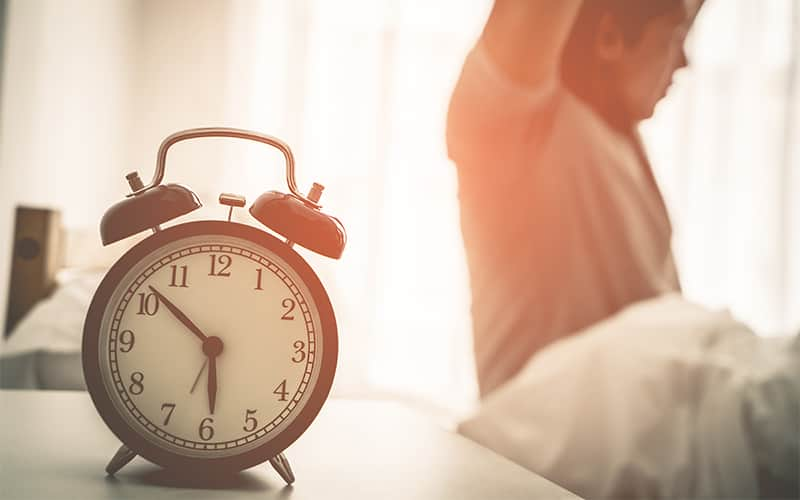
Sleep is vitally important. For athletes, sleep supports physical recovery, helps prevent injuries and can improve reaction time and decision-making — both key in volleyball.
“Lack of sleep decreases … mood, mental stability and emotional regulation,” says Kate Miller, leadership and well-being coordinator for the athletic department at Columbia University and part of the Success Through Well-Being Initiative. “Anxiety and depression can increase if we are not sleeping well.”
Many high schools start classes early, interrupting teenagers’ natural sleep cycle, which is generally later than that of adults and younger children. Some school districts are starting to push high school start times later, but that is not yet widespread.
Until that changes – and even when it does – high school athletes should strive to keep their sleep consistent in order to be at peak form and maximize its recuperative powers.
“What we’re trying to hammer home with our athletes is consistency of their sleep — consistent bedtimes and consistent wake times,” says Tyler Friedrich, director of Olympic sports performance at Stanford University, who monitors sleep data for the women’s volleyball team. Friedrich also works with beach volleyball athletes, women’s rowing and men’s water polo teams.
“Try to have a similar wake time every day, whatever it is,” says Friedrich.
“Bedtimes get a little trickier,” he adds. Oftentimes, work, homework or practice keeps high school athletes from getting to bed at the same time each night. Thankfully, the body likes consistency and can still function well if bedtimes fluctuate a bit. In fact, Friedrich states that “…we can get less sleep and still wake up at the same time every day… because our bodies are very good at being in rhythm and being efficient.”
Even if you go to bed at a consistent time, sometimes it’s hard to fall asleep. Friedrich and Miller offer tips on sleep hygiene — behavioral and environmental practices that promote better sleep quality.
Better sleep begins with turning off the phone.
Friedrich recommends avoiding blue light from a screen – such as a phone or computer – early before bedtime. “When those light receptors in your eye and your brain see the light from the phone, your brain thinks it’s daytime. By not looking at a phone right before bed, you’re telling the brain it is sleeping time, which helps it shut things down.”
Friedrich also suggests making the room as dark as possible and keeping the temperature cool. Additionally, avoid eating before bedtime. If food is consumed, keep it free of sugar or carbohydrates that provide energy to the body.Miller, a former NCAA Division I basketball player, suggests that your children study at a desk rather than in bed. “Create the association that bed is for sleep — not for studying,” she says.
Miller offered the following suggestions for relaxing activities that can help the brain switch off before bedtime.
- Journal
- Read
- Listen to a mindfulness or meditation app
- Perform a mindfulness activity focusing on your breath
- Do some light stretching
- Write a to-do list to help your brain relax
Lastly, Miller encourages planning ahead for big events, like tests or tournaments.
“Don’t just look one week ahead,” she says. “Figure out when midterms and finals are. Figure out when the biggest game of the season is. If there are … three papers due on one day, it’s a lot easier to manage three weeks out instead of three days out.”

